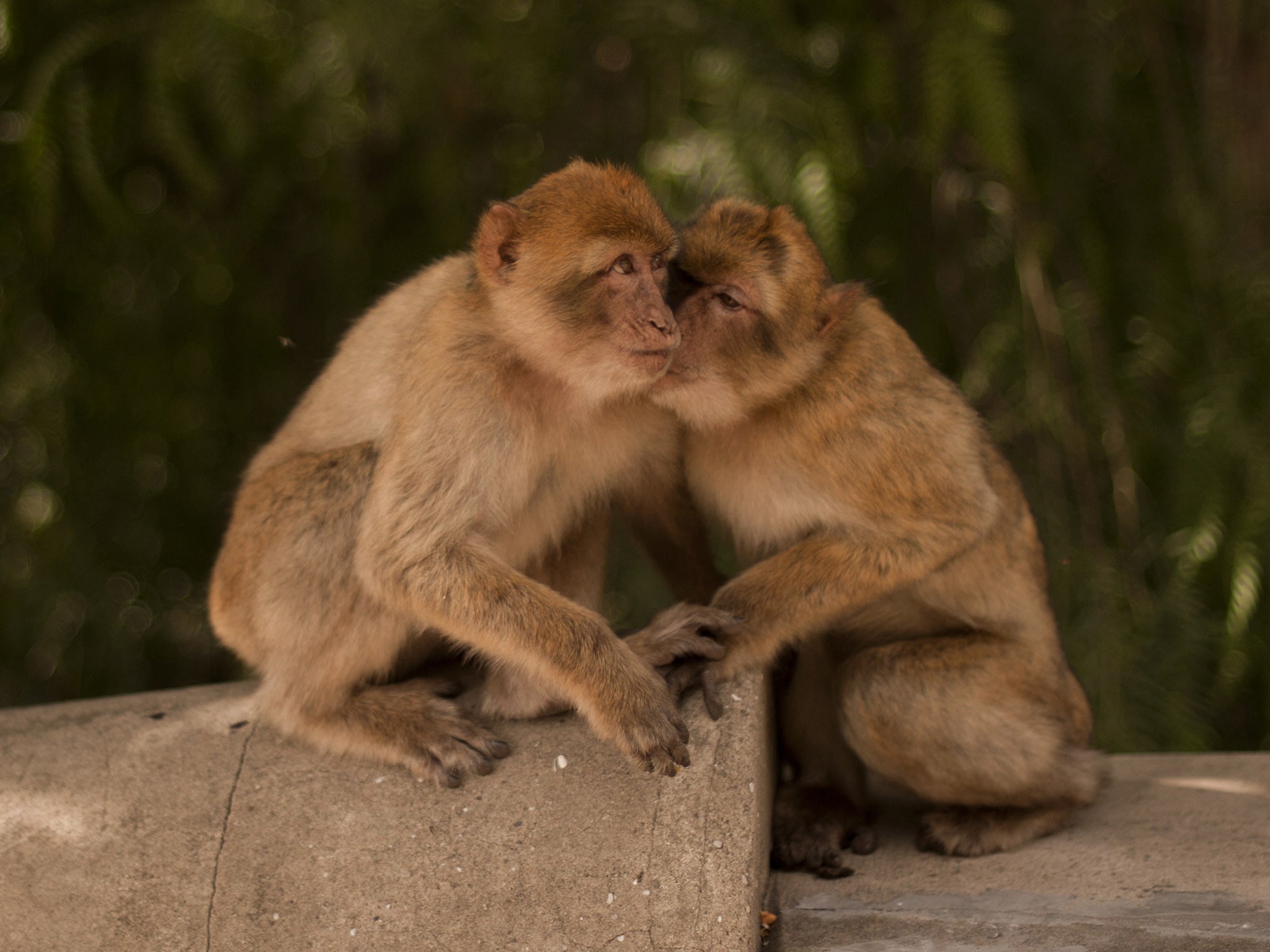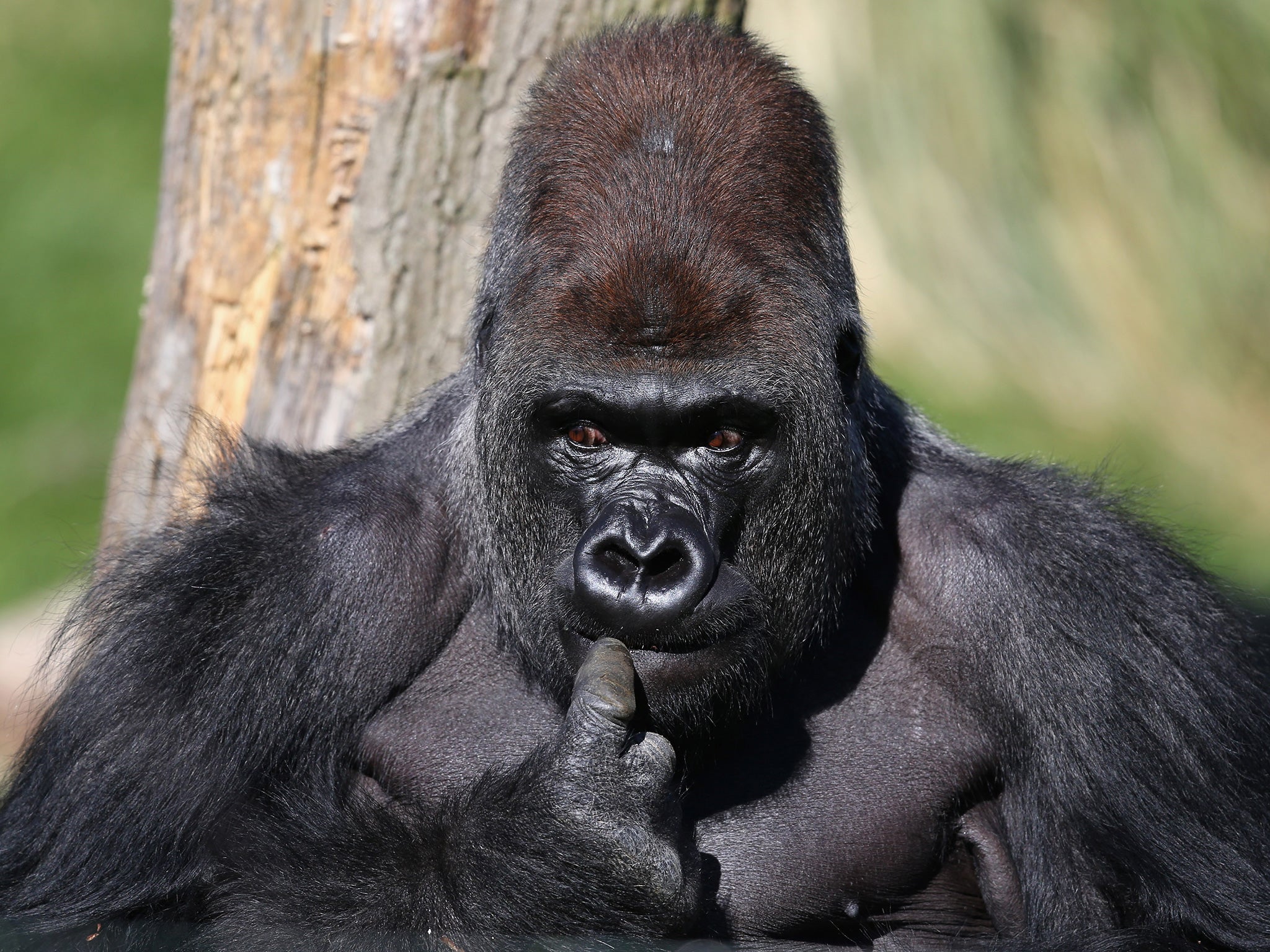Ecotourism harms wildlife because it 'domesticates' animals, says research
By winning the trust of animals, tourists inadvertently put wild creatures in danger by encouraging them to relax with other humans – and natural predators

The popularity of ecotourism may be soaring as people look for ways to get really close to exotic wildlife while keeping a clear conscience. But while their dollars help pay for conservation, these “invasive” trips often do more harm than good because they “domesticate” local animals, putting them at greater risk of being eaten, research says.
By posing for snaps, swimming with dolphins and generally winning the trust of the animals they encounter, the tourists inadvertently put wild creatures in danger by encouraging them to relax with other humans – and, in turn, natural predators – who may not be so friendly, the study finds.
Gorillas, jackass penguins and wild Barbary macaques are among the species most susceptible to ecotourism because they have a strong tendency to “habituate”, or relax, in the presence of humans.
“When animals interact in ‘benign’ ways with humans, they may let down their guard,” said Professor Daniel Blumstein, of the University of California in Los Angeles.
“As they get used to feeling comfortable with humans, they may become bolder. If this boldness transfers to real predators, then they will suffer higher mortality.” Professor Blumstein says that ecotourism is similar to domesticating or urbanising the animals – in all three cases, regular interactions with people may lead to a kind of taming.

Evidence has shown that domesticated silver foxes become more docile and less fearful, in part due to regular interactions with people.
Meanwhile, domesticated fish are less responsive to simulated predatory attacks and fox squirrels and birds that live in cities are bolder and take more time to flee from danger, he says.
With 8 billion ecotourism trips now taking place around the world each year, a phenomenon that aims to act sustainably by helping support the economies and wildlife they encounter can be added to the list of “drivers of human-induced rapid environmental change”, Professor Blumstein said.
Other examples include climate change, the destruction of habitat and intensive farming. But apart from raising money for conservation and local communities, ecotourism does have another benefit, says the report, which is based on an analysis of more than 100 studies into its effect on wildlife.
The presence of humans can discourage natural predators, creating a kind of safe haven for smaller animals.
When humans are around, vervet monkeys have fewer run-ins with predatory leopards. And in Grand Teton National Park in Wyoming, elk and pronghorn in areas with more tourists spend less time at alert and more time feeding, the report notes.
But to what extend do these more relaxed and bolder behaviours around humans transfer to other situations, leaving the animals at risk in the presence of their natural predators – and of poachers?
“We know that humans are able to drive rapid phenotypic (personality trait) change in other species,” says the report published in Trends in Ecology & Evolution.
“If animals selectively habituate to humans – particularly tourists – and if invasive tourism practices enhance this habituation, we might be selecting for or creating traits or syndromes that have unintended consequences, such as increased predation risk,” they added.
The scientists said more research is needed.
Pollution plastic peril for turtles
Some of the world’s leading marine scientists are calling for urgent research into the effect of plastic pollution on turtles, warning that it poses a huge danger about which woefully little is known.
In the week that England introduced a 5p charge on carrier bags to help cut down waste plastic, a review by Exeter University finds that all seven species of marine turtle can ingest or become entangled in the discarded debris that litters the oceans.
“I was shocked at how little is known about the impacts of plastic on marine turtles... this study shows that more research is urgently needed,” said Sarah Nelms, of the University of Exeter.
Professor Brendan Godley, at the same university, added: “Turtles can suffer intestinal blockage that can lead to malnutrition, poor health, reduced growth, lower reproductive output, even death.”
The research, published in the ICES Journal of Marine Science, also involved Plymouth Marine Laboratory, North Carolina Wildlife Resources Commission, North Carolina State University, Duke University, and James Cook University.
Tom Bawden
Join our commenting forum
Join thought-provoking conversations, follow other Independent readers and see their replies
Comments
Bookmark popover
Removed from bookmarks